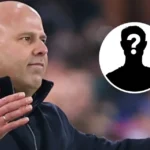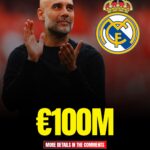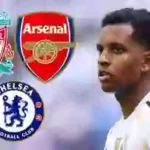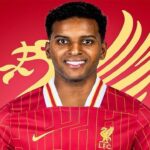Real Madrid winger is reportedly interested in moving to Manchester City.
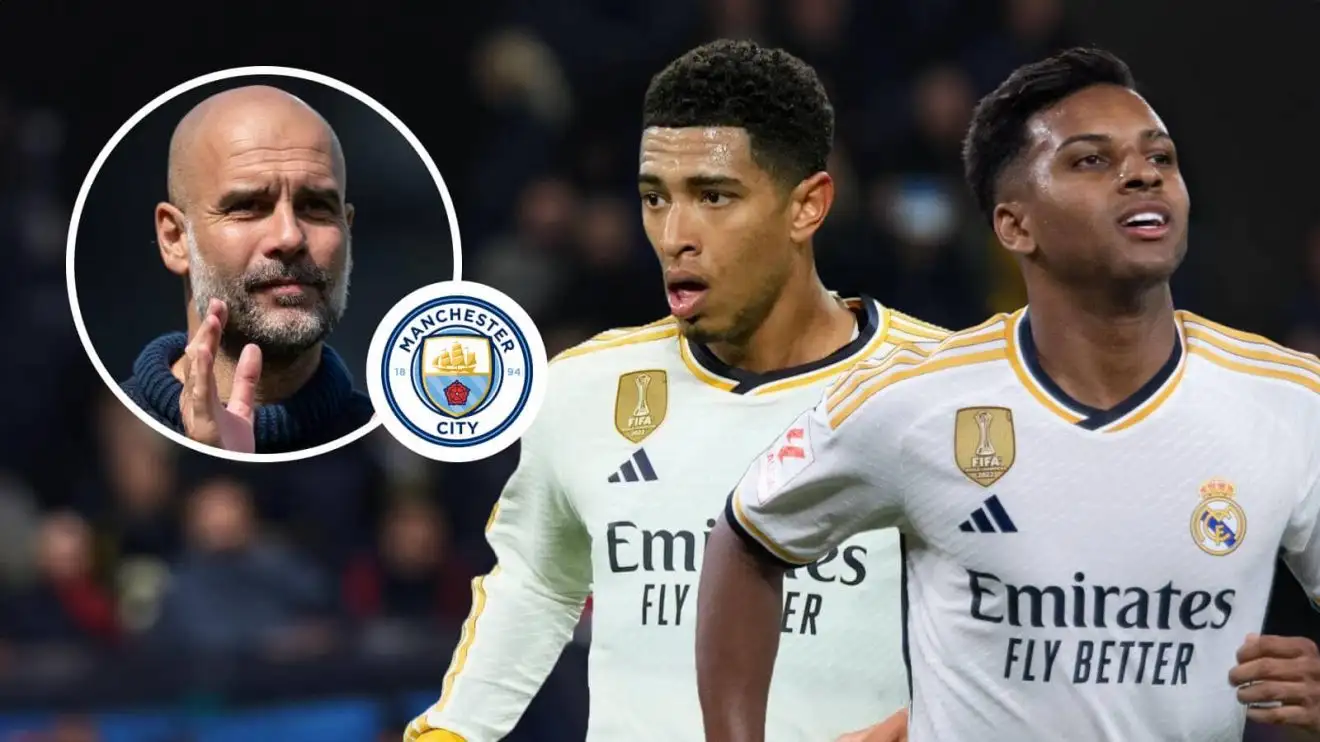
In the ever-evolving landscape of modern football transfers, few stories capture the complexity of squad planning quite like Manchester City’s reported interest in Real Madrid’s Rodrygo Goes. The Brazilian winger has emerged as one of the most coveted attacking talents in world football, having established himself as a crucial component of Real Madrid’s success over recent seasons. His pace, technical ability, and knack for crucial goals have made him a standout performer on the grandest stages, from El Clásico encounters to Champions League finals.
Yet, despite Manchester City’s apparent admiration for the 24-year-old Brazilian international, the potential transfer represents one of football’s most intriguing paradoxes: a world-class player that a world-class team desires but may not necessarily need. This contradiction lies at the heart of what could become one of the summer’s most discussed non-transfers, highlighting the intricate balance between ambition and pragmatism that defines modern football recruitment.
Manchester City’s interest in Rodrygo is not a recent development. The Sky Blues have been monitoring the Brazilian’s progress for several seasons, recognizing his potential to add another dimension to their already formidable attacking arsenal. However, as Pep Guardiola’s squad has evolved and expanded, the question has shifted from whether City want Rodrygo to whether they actually have space for him in their meticulously crafted tactical system.
The Rodrygo Profile: Understanding the Appeal
To understand why Manchester City would be interested in Rodrygo, one must first appreciate what the Brazilian brings to the table. Since his arrival at Real Madrid from Santos in 2019, Rodrygo has developed into one of Europe’s most versatile and dangerous wide players. His ability to operate effectively on either flank, combined with his pace, dribbling skills, and clinical finishing, makes him an attractive proposition for any elite club.
Rodrygo’s development trajectory has been particularly impressive. Initially viewed as a raw talent with significant potential, he has matured into a player capable of delivering in the most pressure-filled moments. His performances in Real Madrid’s Champions League campaigns have been nothing short of spectacular, with crucial goals and assists that have helped Los Blancos maintain their status as Europe’s premier competition’s most successful club.
The Brazilian’s tactical intelligence sets him apart from many of his contemporaries. Unlike wingers who rely solely on pace or trickery, Rodrygo possesses an innate understanding of space and timing that allows him to make intelligent runs behind defenses and create opportunities for teammates. This cerebral approach to the game would theoretically align well with Pep Guardiola’s possession-based philosophy, where players are expected to contribute both individually and collectively to the team’s tactical objectives.
Furthermore, Rodrygo’s experience at the highest level of European football cannot be understated. Having featured in multiple Champions League finals and El Clásico encounters, he possesses the mental fortitude and big-game temperament that Guardiola values highly in his players. This experience would be invaluable in Manchester City’s continued pursuit of European glory, providing the squad with another player capable of rising to the occasion when the stakes are highest.
Manchester City’s Attacking Evolution
To fully grasp why Rodrygo’s potential arrival at the Etihad Stadium presents such a complex puzzle, one must examine how Manchester City’s attacking options have evolved under Pep Guardiola. The Catalan manager has consistently demonstrated his ability to adapt his tactical approach based on the players at his disposal, creating a system that maximizes the strengths of his squad while maintaining the core principles of his footballing philosophy.
The current Manchester City attacking setup represents years of careful planning and strategic recruitment. On the left wing, the club has invested heavily in Jeremy Doku, the Belgian winger whose direct running and pace offer a different dimension to City’s traditionally possession-heavy approach. Doku’s ability to take on defenders in one-on-one situations provides Guardiola with a valuable outlet when teams sit deep and compact, allowing City to stretch defenses and create space for other attackers to exploit.
The recent acquisition of Omar Marmoush has further strengthened City’s left-sided options. The Egyptian international brings a different skill set to the position, combining technical ability with intelligent movement and a keen eye for goal. Marmoush’s versatility allows him to operate effectively across the front line, providing Guardiola with the tactical flexibility that has become synonymous with Manchester City’s approach under his guidance.
On the right wing, Manchester City’s options are equally impressive. Phil Foden has established himself as one of the Premier League’s most exciting talents, capable of operating effectively in multiple positions across the attacking third. His understanding of Guardiola’s tactical system, combined with his natural ability and work ethic, makes him an invaluable asset to the team’s overall strategy.
Oscar Bobb represents another exciting prospect in City’s attacking ranks. The Norwegian winger has shown tremendous promise in his limited opportunities, demonstrating the technical ability and tactical awareness that Guardiola demands from his wide players. Bobb’s development trajectory suggests he could become a significant contributor to Manchester City’s success in the coming seasons.
The addition of Rayan Cherki to Manchester City’s squad has further complicated the attacking hierarchy. The French playmaker’s creativity and ability to operate in multiple positions across the front line add another layer of tactical complexity to Guardiola’s system. Cherki’s vision and passing ability make him particularly valuable in breaking down organized defenses, while his youth suggests he could be a long-term solution to City’s creative needs.
The Squad Depth Dilemma
Manchester City’s current squad composition presents a unique challenge that extends beyond simply having talented players available. The modern game’s demands require squads to maintain depth across all positions, ensuring that injuries, suspensions, and fatigue do not significantly impact performance levels. However, there comes a point where having too many players can become counterproductive, creating management headaches and potentially disrupting team harmony.
Guardiola has consistently emphasized the importance of maintaining a motivated and committed squad. Players who feel they have limited opportunities for meaningful playing time can become disruptive influences, particularly if they possess the quality and ambition that typically characterizes elite-level footballers. This delicate balance between having sufficient depth and maintaining squad harmony is one of the most challenging aspects of modern football management.
The current size of Manchester City’s squad already presents significant rotation challenges for Guardiola. With quality players competing for limited positions, the manager must carefully manage expectations and ensure that all squad members feel valued and have realistic opportunities to contribute. Adding another high-profile player like Rodrygo to this mix could potentially upset this delicate balance, particularly if it means other promising players receive even fewer opportunities.
Furthermore, financial fair play regulations and squad registration rules impose practical limitations on how many players clubs can maintain. Manchester City must navigate these constraints while ensuring they comply with all relevant regulations. The addition of a player commanding Rodrygo’s wages and transfer fee would likely necessitate corresponding departures, creating a domino effect that could impact the squad’s overall composition and chemistry.
The Financial Reality
The financial aspects of a potential Rodrygo transfer cannot be ignored when assessing the likelihood of such a move materializing. According to reports from Spanish publication Cadena SER, Real Madrid would demand at least €90 million for the Brazilian winger. This substantial fee represents just the beginning of the financial commitment required to secure Rodrygo’s services.
Beyond the initial transfer fee, Manchester City would need to consider Rodrygo’s salary expectations, signing bonuses, agent fees, and various other costs associated with high-profile transfers. Given Rodrygo’s status at Real Madrid and his importance to their tactical setup, any contract offer would need to reflect his market value and provide sufficient incentive for him to leave one of football’s most prestigious clubs.
The €90 million valuation, while substantial, reflects Rodrygo’s quality and potential. However, for Manchester City, the question becomes whether this represents value for money given their current squad composition. With multiple quality options already available in wide positions, the club’s hierarchy must weigh whether investing such a significant sum in another winger represents the most efficient use of their resources.
Manchester City’s recent transfer activity suggests a more measured approach to recruitment, focusing on players who address specific tactical needs or represent exceptional value. The club’s successful acquisitions in recent windows have typically been characterized by careful planning and strategic thinking rather than opportunistic moves for high-profile players.
Tactical Considerations and Positional Competition
From a purely tactical perspective, integrating Rodrygo into Manchester City’s system would present both opportunities and challenges for Pep Guardiola. The Brazilian’s skillset aligns well with many of the attributes Guardiola values in wide players: technical ability, pace, intelligent movement, and the capacity to contribute defensively when required.
However, Guardiola’s tactical system demands more than individual brilliance from wide players. They must understand complex positional rotations, maintain tactical discipline during different phases of play, and seamlessly integrate with the team’s overall strategic approach. While Rodrygo has demonstrated these qualities at Real Madrid, adapting to Guardiola’s specific requirements would require time and patience from all parties involved.
The competition for places in Manchester City’s attacking positions is already intense. Players like Foden, Doku, Marmoush, Bobb, and Cherki each bring different qualities to the team, and Guardiola has shown his ability to utilize this depth effectively throughout demanding seasons. Adding Rodrygo to this group would create an even more competitive environment, potentially leading to frustration among players who see their opportunities further limited.
Guardiola’s preference for tactical flexibility means that many of his attacking players are expected to be comfortable in multiple positions. While this approach maximizes the squad’s versatility, it also means that new signings must demonstrate adaptability and willingness to embrace different roles depending on tactical requirements and opposition analysis.
The Jack Grealish Factor
One element that could potentially create space for Rodrygo in Manchester City’s squad is the uncertain future of Jack Grealish. The English winger, who joined City for a British record fee in 2021, has had mixed fortunes at the Etihad Stadium. While he has contributed to the team’s success and shown flashes of his exceptional ability, questions remain about his long-term role in Guardiola’s plans.
Grealish’s situation highlights the challenges faced by wide players in Guardiola’s system. Despite his undoubted talent and proven Premier League pedigree, the former Aston Villa captain has found it difficult to establish himself as an undisputed starter. His tendency to hold onto the ball and create individual moments of brilliance sometimes conflicts with the quick passing and movement that characterizes City’s possession-based approach.
If Grealish were to leave Manchester City during the summer transfer window, it would create a vacancy that Rodrygo could potentially fill. However, this scenario raises questions about whether City would simply be replacing one expensive wide player who has struggled to fully integrate with another, potentially creating similar challenges down the line.
The financial implications of Grealish’s potential departure would also need to be considered. Any transfer fee received for the English international could help offset the cost of acquiring Rodrygo, making the Brazilian’s signing more financially palatable. However, City would need to be confident that Rodrygo would adapt more successfully to Guardiola’s system than Grealish has managed.
Real Madrid’s Perspective
Understanding Real Madrid’s position in any potential Rodrygo transfer is crucial to assessing the likelihood of such a move occurring. Los Blancos view the Brazilian as an important part of their long-term project, particularly given his age profile and continued development trajectory. His contributions to their recent Champions League success have only reinforced his value to the club.
Real Madrid’s squad planning typically involves careful consideration of both immediate needs and future requirements. Rodrygo’s versatility and ability to impact games in crucial moments make him a valuable asset for a club that consistently competes for the highest honors. Any decision to sell him would need to align with their broader strategic objectives and transfer plans.
The €90 million valuation placed on Rodrygo reflects Real Madrid’s reluctance to sell unless presented with an offer that significantly exceeds their internal valuation. This pricing strategy suggests that Los Blancos are not actively seeking to move the Brazilian, instead setting a fee that would require serious consideration but also provide substantial funds for reinvestment.
From Real Madrid’s perspective, losing Rodrygo without adequate replacement would weaken their squad depth and tactical options. The club’s recent success has been built on having quality players capable of making decisive contributions when called upon, and Rodrygo clearly fits this profile.
Alternative Scenarios and Market Dynamics
The transfer market’s complexity means that numerous factors could influence the potential Rodrygo transfer beyond the immediate considerations of squad fit and financial investment. Changes in other clubs’ transfer activities, unexpected player departures, or shifts in tactical priorities could all impact Manchester City’s approach to this particular situation.
Arsenal’s reported interest in Rodrygo adds another dimension to the potential transfer saga. The Gunners’ involvement could create a competitive dynamic that influences both the player’s decision-making process and the financial terms of any potential deal. Competition between Premier League clubs often drives up transfer fees and wages, potentially making such moves less attractive from a value perspective.
The broader transfer market context also plays a role in shaping these discussions. If other high-profile wide players become available at more attractive prices or with better squad fit credentials, Manchester City might prioritize alternative targets. The club’s recruitment strategy has consistently demonstrated flexibility and opportunism when suitable players become available.
Manchester City’s approach to summer transfers has evolved to become more strategic and less reactive in recent years. Rather than pursuing every available talent, the club now focuses on players who address specific needs or represent exceptional opportunities. This measured approach suggests they would need to be convinced that Rodrygo represents the right investment at the right time.
Long-term Strategic Implications
Any decision regarding Rodrygo’s potential transfer must be viewed through the lens of Manchester City’s long-term strategic planning. The club’s success under Pep Guardiola has been built on careful squad construction and tactical evolution, with each signing considered within the broader context of the team’s development trajectory.
The age profiles of City’s current attacking players suggest that there may be opportunities for new signings in the coming seasons. However, the timing of such additions requires careful consideration to ensure optimal squad balance and development opportunities for younger players already within the system.
Manchester City’s commitment to developing young talent through their academy system also influences transfer decisions. The club has invested heavily in youth development and must balance external recruitment with opportunities for homegrown players to progress through the ranks. Adding another established wide player could potentially limit opportunities for academy graduates to establish themselves in the first team.
The broader competitive landscape in European football also shapes these strategic considerations. Manchester City’s rivals continue to strengthen their squads, creating pressure to maintain and improve their own roster quality. However, the club’s recent success suggests that their current approach to squad building is effective, raising questions about whether significant changes are necessary.
Conclusion: The Unlikely Transfer
As the summer transfer window progresses, the Rodrygo to Manchester City story appears increasingly unlikely to reach a satisfactory conclusion for all parties involved. While the Brazilian’s quality is undeniable and Manchester City’s admiration for his abilities is genuine, the practical realities of modern football create significant obstacles to such a transfer materializing.
The fundamental issue remains one of squad composition and tactical fit. Manchester City already possess multiple high-quality options in wide positions, each bringing different attributes to Pep Guardiola’s tactical system. Adding Rodrygo to this group would create an embarrassment of riches that could prove difficult to manage effectively, particularly given the player’s likely expectations regarding playing time and role within the team.
The financial considerations further complicate the situation. While Manchester City certainly possess the resources to complete such a transfer, the question becomes whether the investment represents optimal value given their current needs and priorities. The €90 million fee, combined with associated costs, represents a significant commitment that would need to be justified by clear tactical benefits and strategic advantages.
Rodrygo’s own perspective adds another layer of complexity to the situation. A player of his caliber and ambition would naturally expect to be a regular starter wherever he moves, particularly if leaving a club of Real Madrid’s stature. Manchester City’s current squad composition makes such guarantees difficult to provide, potentially making alternative destinations more attractive from the player’s perspective.
The transfer market’s unpredictable nature means that circumstances could change rapidly, creating new opportunities or eliminating existing obstacles. However, based on current evidence and logical analysis, the Rodrygo to Manchester City transfer appears to be one of those romantic possibilities that captures imagination but lacks the practical foundation necessary for completion.
Instead, this saga serves as a fascinating case study in modern football’s complexity, highlighting how even the most talented players and successful clubs can find themselves in situations where mutual interest doesn’t necessarily translate into successful outcomes. The gap between wanting something and needing it, between possibility and practicality, often defines the difference between transfers that happen and those that remain perpetually in the realm of speculation.
For Manchester City, the focus will likely remain on optimizing their current squad and identifying opportunities that offer clearer strategic benefits. For Rodrygo, the challenge will be determining whether his long-term ambitions are best served by remaining at Real Madrid or seeking new challenges elsewhere. And for football fans, this story will continue to provide endless debate and speculation about what might have been in the complex world of modern transfer dealings.
